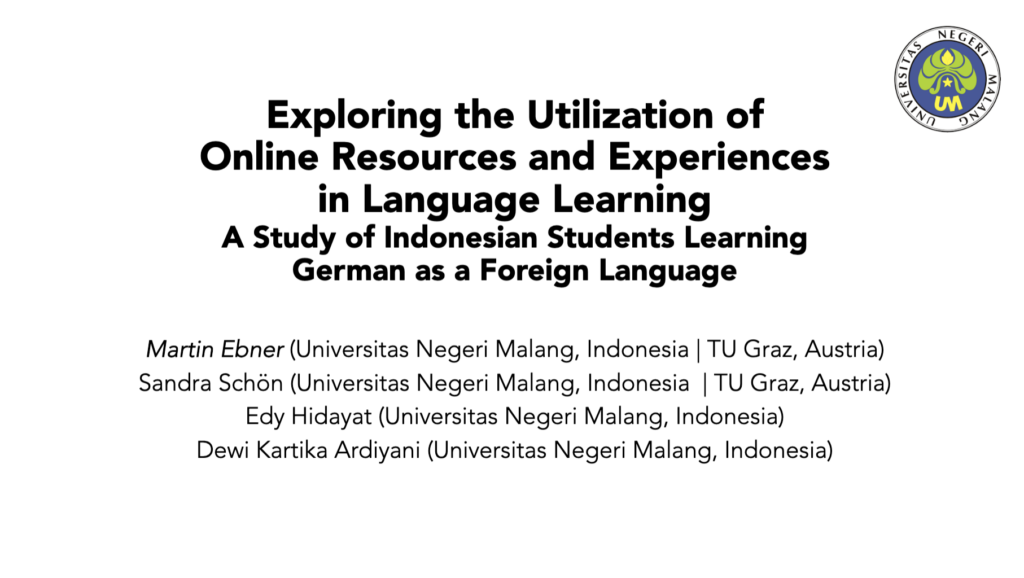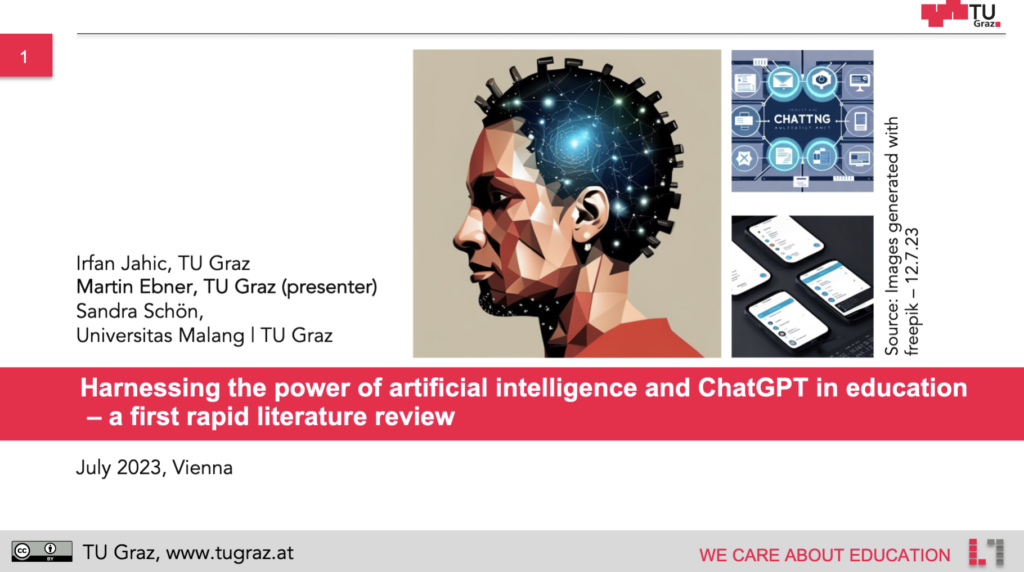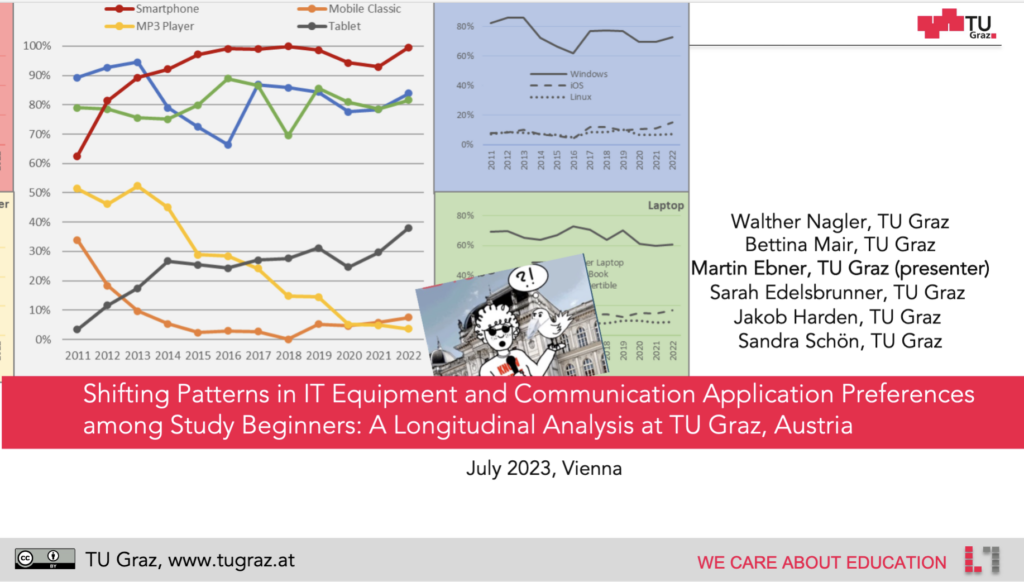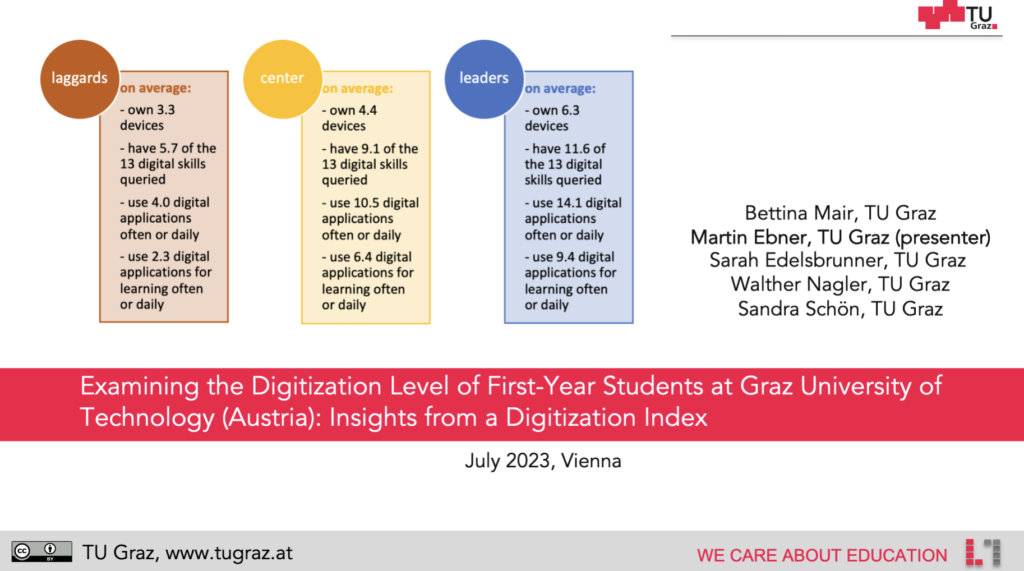Our conference paper, titled „Examining the Digitization Level of First-Year Students at Graz University of Technology (Austria): Insights from a Digitization Index„, at EDMedia and Innovative Learning 2023 conference in Vienna is published.
Abstract: The Educational Technology team at Graz University of Technology (TU Graz) tried to measure the degree of digitization among first-year students (n=1,029). To achieve this, a digitization index was constructed that incorporates various dimensions of digitization, including IT equipment, digital skills, and usage of digital applications for learning. The index is based on two existing studies, the German D21-Digital-Index and the Austrian DiKoS study. It was adapted to fit the context of first-year students at university. The study revealed an average digitization level among first-year students at TU Graz was 39.60 on a scale from 0 to 100. The analysis of specific groups indicated variations in the degree of digitization. Female students, students under 20 and over 25 years old, as well as those from natural sciences and mathematics fields exhibited lower levels of digitization compared to their counterparts. Furthermore, students who attended grammar school before university had lower digitization levels compared to those from higher vocational schools or secondary technical schools. Based on the digitization index, the students are classified into three groups: digital laggards, digital center, and digital leaders. Most first-year students fell into the digital center category, while a smaller proportion were identified as digital laggards or leaders. These groups differed in terms of their device ownership, digital skills, and usage of digital applications.
[publication @ ResearchGate]
[publication @ proceeding’s homepage]
Reference: Mair, B., Martin, E., Edelsbrunner, S., Nagler, W. & Schön, S. (2023). Examining the Digitization Level of First-Year Students at Graz University of Technology (Austria): Insights from a Digitization Index. In T. Bastiaens (Ed.), Proceedings of EdMedia + Innovate Learning (pp. 1128-1136). Vienna, Austria: Association for the Advancement of Computing in Education (AACE). Retrieved July 14, 2023 from https://www.learntechlib.org/primary/p/222629/.




